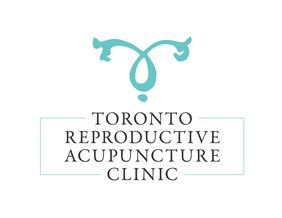|
You know the drill when it comes to hormonal blood work; it’s a lot of poking and prodding on multiple days of your menstrual cycle. In my experience, my patients have had all the right testing done (mostly), but no one has taken the time to sit down with them and explain what the results truly mean. The biggest pitfall of serum (blood) hormone testing is that the reference ranges are MASSIVE. Which means it is highly unlikely that your results will be deemed “abnormal” even though you know something is wrong. So that’s what this blog is for; I’m going to break it all down for you and discuss what the results mean and the REAL range you’re looking for. Note: the following reference ranges are for women and are Canadian units. 1) Estradiol What it is: Estradiol, along with LH and FSH, stimulate follicle (egg) maturation. It’s also responsible for female sex characteristics, thickening of the endometrial lining, and bone protection. Estrogen can also be converted from fat, in both males and females, by an enzyme called aromatase. What it means: Low estradiol is present in peri-menopause and menopause. Elevated estrogen is present in early premature ovarian insufficiency (followed by low levels), and in estrogen dominant conditions like: PMS, endometriosis, PCOS, and obesity. Reference Range: Follicular 77-921 pmol/L Luteal 77-1145 pmol/L The “real” range: The width of the above ranges is ridiculous! Estradiol should be tested on day 3 and should be lower than 200 pmol/L and higher than 80 pmol/L. A level higher than this is a sign that the body is trying too hard to stimulate egg development, and the ovaries are not responding. In this case, you will likely see elevated FSH too. 2) FSH (follicle-stimulating hormone) What it is: The name says it all. FSH is in charge of the development and maturation of follicles. What it means: High levels are diagnostic of menopause, ranging from 27-133 IU/L. When your body is pumping out more FSH than normal, it’s a sign that the ovaries are not responding (just like estrogen). Low levels of FSH are typically present in PCOS. Reference Range: Follicular 3-8 IU/L Mid-cycle 3-22 IU/L Luteal 1.5-5.5 IU/L The “real” range: Higher than 8 IU/L on day 3 (that’s the 3rd day of your period) is too high and the value is only going up from there. 6 IU/L is as good as it gets on day three. 3) LH (Luteinizing hormone) What it is: Ah, the hormone everyone knows and loves! The LH surge triggers ovulation and is measured by urine strips. LH also contributes to the maturation of eggs. You may not know that estrogen surges right before LH, which can also be used to detect ovulation. What it means: On day 3, an LH to FSH ratio greater than 2:1 is indicative of PCOS. LH is elevated in PCOS for so many reasons I’ll need to dedicate another blog to it. Elevated LH also stimulates elevated testosterone production, and in turn estrogen production. Contrary to what you may think, high LH actually inhibits ovulation instead of stimulating it. Reference Range: Follicular 2-12 IU/L Mid-cycle 8-90 IU/L Luteal 1-14 IU/L The “real” range: LH should be almost equivalent to FSH on day 3. 6-8 IU/L is ideal. 4) Progesterone What it is: Most of the body’s progesterone is produced by the outer coating of the egg, called the corpus luteum. After you ovulate, progesterone levels increase to maintain the endometrial lining and prepare for embryo implantation. Progesterone also stimulates the production of a thick mucous that covers the cervix so no sperm can enter the uterus (FYI this is the basis of hormonal birth control). What it means: A low level of mid-luteal progesterone indicates anovulation and luteal phase defect (short luteal phase) and predicts implantation failure/ early miscarriage. Reference Range: Luteal 4-50 nmol/L The “real” range: On day 21 the minimum value is 10 nmol/L to have ovulated and 20 nmol/L to carry a pregnancy. Day 21 is arbitrary if you don’t ovulate on day 14. Progesterone is best-tested 7 days after you ovulate. 5) Prolactin What it is: The main function of prolactin is to stimulate breast milk production. However, elevation can also occur due to the following: benign pituitary tumor, periods of high stress, hypothyroidism, PCOS, and certain medications. What it means: Elevated prolactin inhibits the release of GnRH, which then inhibits the release of LH and FSH. Without LH and FSH, follicles will not develop. Reference Range: 5-30 ug/L The “real” range: Prolactin levels as high as 50 ug/L can inhibit ovulation, but small increases by a few points are relatively harmless. One-time elevation should be followed by repeat testing. As mentioned, stress is a major influence on this hormone. 6) DHEA What it is: A precursor hormone to both estrogen and testosterone. What it means: DHEA is often evaluated in PCOS, as elevations in this hormone increase androgen levels. It may be prescribed to improve ovarian reserve (but not without fun side-effects). Reference Range: <9.8 umol/L 7) Androstenodione What it is: Produced from DHEA, this hormone is the precursor to testosterone. What it means: Elevated androstenedione is found in PCOS and adrenal hyperplasia. Both conditions inhibit ovulation. It may be elevated in isolation, or with testosterone. Reference Range: Follicular 1.2-8.7 nmol/L Luteal 1.1-8.2 nmol/L 8) Testosterone What it is: You know this hormone for its role as the primary male sex hormone, but it’s important for women too! In the ovaries, testosterone is produced by the stromal cells and converted to estrogen. It participates in follicle growth and development, not to mention male and female libido. What it means: Too much is present in PCOS which is far from ideal, but too little can inhibit ovulation and egg development. Reference Range: Total testosterone 0.3- 1.8 nmol/L (some labs up to 4 nmol/L) The “real” range: Testosterone is extremely tricky to test accurately. Free testosterone is a better measurement than total and the reference ranges (depending on the lab) have huge variability. In order to test free testosterone you need to test total testosterone and sex hormone binding globulin. 9) AMH (Anti-Mullerian Hormone) What it is: It’s a hormone that can depict the female egg reserve because it is secreted by the eggs in the ovaries. The more eggs you have, the higher the value will be. Not surprisingly, AMH decreases with age. This is the only hormone test we have for predicting ovarian reserve. What it means: A lower value for your age means you have a lower number of eggs than the average female. A much higher value for your age is indicative of PCOS, as the cystic ovaries in PCOS secrete excess AMH. Reference Range: The numbers are averages based on age: < 33 = 2.1 ng/mL 33-37 = 1.7 ng/mL 38-40 = 1.1 ng/mL > 41 = 0.5 ng/mL The “real” range: At any age, a value > 3.15 - 4.45 ng/mL warrants further testing for PCOS. A value of 6.8-10 ng/mL is diagnostic. 10) TSH (thyroid stimulating hormone) & Antibodies (anti-TPO, anti-TG, anti-TSH) What it is: TSH is released by the anterior pituitary, which then stimulates the release of thyroid hormones (T3, T4) from the thyroid gland. TSH above the reference range with symptoms present is diagnostic of hypothyroidism, and below is hyperthyroidism. TPO and TG antibodies cause the thyroid condition known as Hashimoto’s, anti-TSH is more commonly present in Graves’. What it means: Deficient thyroid function affects egg quality, embryo quality, and implantation rates. Combine that with thyroid antibodies, and there’s an increased risk of miscarriage. Reference Range: TSH 0.32-4.0 mIU/L Antibodies should all be negative The “real” range: TSH should be < 2.5 to prevent miscarriage. A full thyroid lab panel (with individual thyroid hormones) is certainly necessary in cases of recurrent miscarriage. Have more questions? Meet with me! Wondering about your own lab results? Need a little help wading through the information and finding the useful parts? I offer a free 30 min consultation to all new patients. Click below to book yours today. I look forward to seeing you soon! Written by Dr Caleigh Sumner ND References
Zadehmodarres S, Heidar Z, Razzaghi Z, Ebrahimi L, Soltanzadeh K, Abed F. Anti-mullerian hormon level and polycystic ovarian syndrome diagnosis. Iranian Journal of Reproductive Medicine. 2015;13(4):227-230. Wiweko B, Maidarti M, Priangga MD, et al. Anti-mullerian hormone as a diagnostic and prognostic tool for PCOS patients. Journal of Assisted Reproduction and Genetics. 2014;31(10):1311-1316. doi:10.1007/s10815-014-0300-6. http://tests.lifelabs.com/Laboratory_Test_Information/Search.aspx Huhtinen K, Desai R, Ståhle M, et al. Endometrial and Endometriotic Concentrations of Estrone and Estradiol Are Determined by Local Metabolism Rather than Circulating Levels. The Journal of Clinical Endocrinology and Metabolism. 2012;97(11):4228-4235. doi:10.1210/jc.2012-1154. Kumar P, Sait SF. Luteinizing hormone and its dilemma in ovulation induction. Journal of Human Reproductive Sciences. 2011;4(1):2-7. doi:10.4103/0974-1208.82351.
4 Comments
11/10/2023 11:42:13 am
It was very difficult to trust someone you haven't met or seen before but this herbalist has restored my life by curing me from a nasty virus, He has helped me and my friend in situations of Herpes positive. he cured me with his herbs, There is no harm in trying to get help curing your mess so get to know about this herbalist on his web if you're in same situation because he's got potentials in putting herbs together to cure herpes virus https://excelherbalcure.com
Reply
Amos Harrison
11/16/2023 09:41:29 am
Reply
EVANS PHILIP
5/30/2024 09:17:31 pm
Amazing Love Spell To Get Back With your Partner and Fix Your Broken Relationship WHATSAPP+2349161779461
Reply
Stephanie Sally
7/23/2024 05:11:44 am
Hello everyone, I am from Wembley, Britain. I want to write this testimony to tell others and thank Dr. Odunga for what he has done for me. The first 12 years of my marriage I had 5 miscarriages and I was called all sorts of names by my mother-in-law and this made my marriage life very hectic and a burden of sorrow. I contacted Dr. Odunga for help and I will say that he is a very strong and honest man and he indeed helped me solve my problem. I saw his email in a testimony and I contacted him, little did I know it would be the end of all my problems. After 2 days of contact, I received a fertility herb and he told me to use it. The herb worked and my husband even loved me more and bought me expensive things. One afternoon, I went to a nearby hospital and came back home with the positive result of my pregnancy and after 9 months I gave birth to a baby boy. Ever since I contacted Dr. Odunga, my story has been different. I have 3 children at present and I am very happy in my marriage. Please, contact him at [email protected] OR Whats App him +2348167159012 to help you too
Reply
Leave a Reply. |



 RSS Feed
RSS Feed